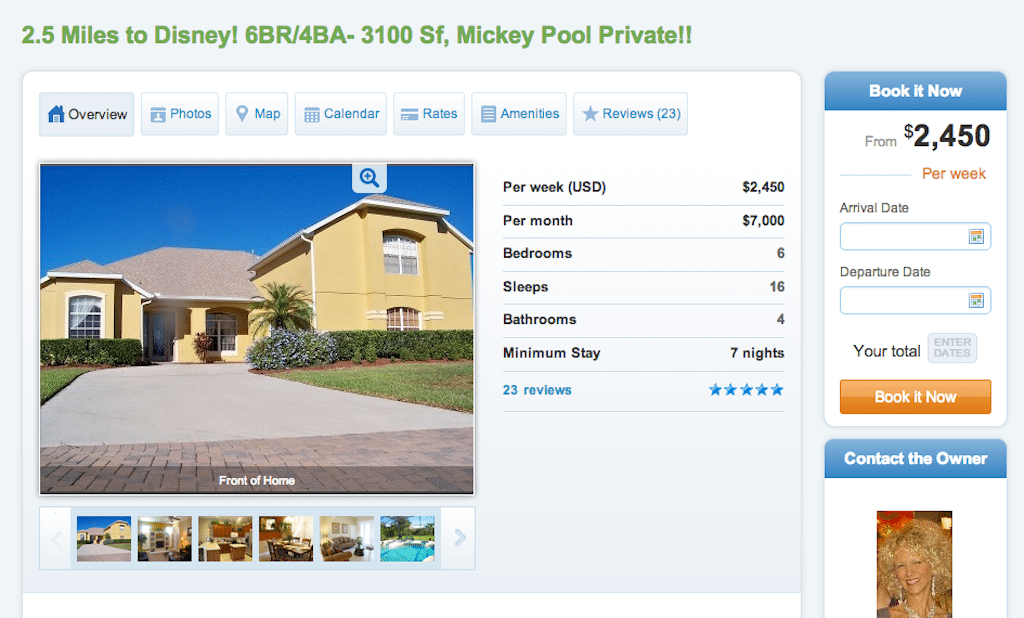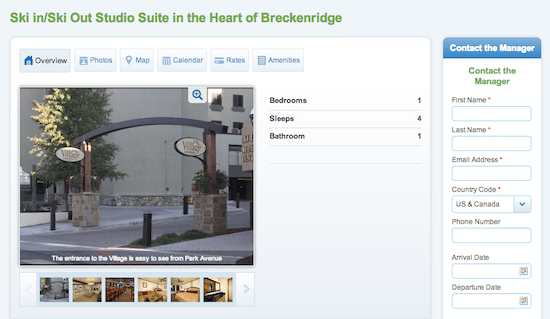Why online vacation rental listings are still stuck in the past

Skift Take
Lots of people think the lack of progress in being able to book vacation rentals online, as you would hotel rooms, is a technology problem, but it's also an attitude problem.
HomeAway, the vacation rental behemoth, had more than 742,000 paid listings of properties as of the end of March, and of these, fewer than 15,000 listings, or around 2%, featured a "book it now" button, said CEO Brian Sharples yesterday during HomeAway's first quarter earnings conference call.
Property owners or managers with "book it now" buttons on their listings can accept credit card payments (2.5% fees) and e-checks (no fees), improve performance because their listings get pushed higher in search results, and receive downloadable reports for tax purposes.
For the consumer, of course, online booking saves the effort of having to track down the property owner, engaging in endless phone calls, and snail-mailing checks.
But, to date just 2% of HomeAway's listings offer this online booking capability.
Sharples explained that it is going to take a lot of education of vacation rental owners to get more online booking adoption.
"... A lot of people equate online bookings with somebody they don't know, coming in the middle of the night, hitting that button and renting their property," Sharples said. "When in actual fact, the way the product is structured, is it does give people 24 hours to be able to vet somebody. But we find that when talk to people on the phone, there's a lot of confusion about that, still."
There are other reasons that online booking is lagging, and instead often resembles a game of phone tag or endless emails when listings (right) don't have online booking capability.
No one talks much about it, but many vacation rental owners don't want to have the electronic paper trail that comes with online payments and bookings because then they could be forced to pay more in taxes.
Vacation rentals are indeed different than hotels, but the online booking gap shouldn't be as gargantuan as it currently is.
Sharples thinks online booking of vacation rentals will grow. Besides educating owners about the 24-hour vetting process, another factor is the pay-per-booking model that HomeAway expects to begin rolling out in the fourth quarter.
Property owners currently pay tiered subscription fees for listings on HomeAway's sites, but with pay-per-bookings, the listings themselves will be free, and owners would only pay a still-unpublicized fee when their properties get booked.
Sharples said that "free subscribers" in the pay-per booking model will be required to accept online payments and have a "book it now" button on their listings.
"So in a way, the bar to get on our site for free is going to be pretty high," Sharples said. "You're going to have to build what we would consider to be a very high-quality listing in order to do it."
In other developments, HomeAway's net income in the first quarter grew 120.8% year-over-year to $5.3 million on $79.5 million in revenue, a 24% jump.
HomeAway attributed the revenue increase to "an increase in new listings, an increase in average revenue per listing as a result of tiered pricing and bundled product offerings and the benefit of ancillary product and service revenue."





